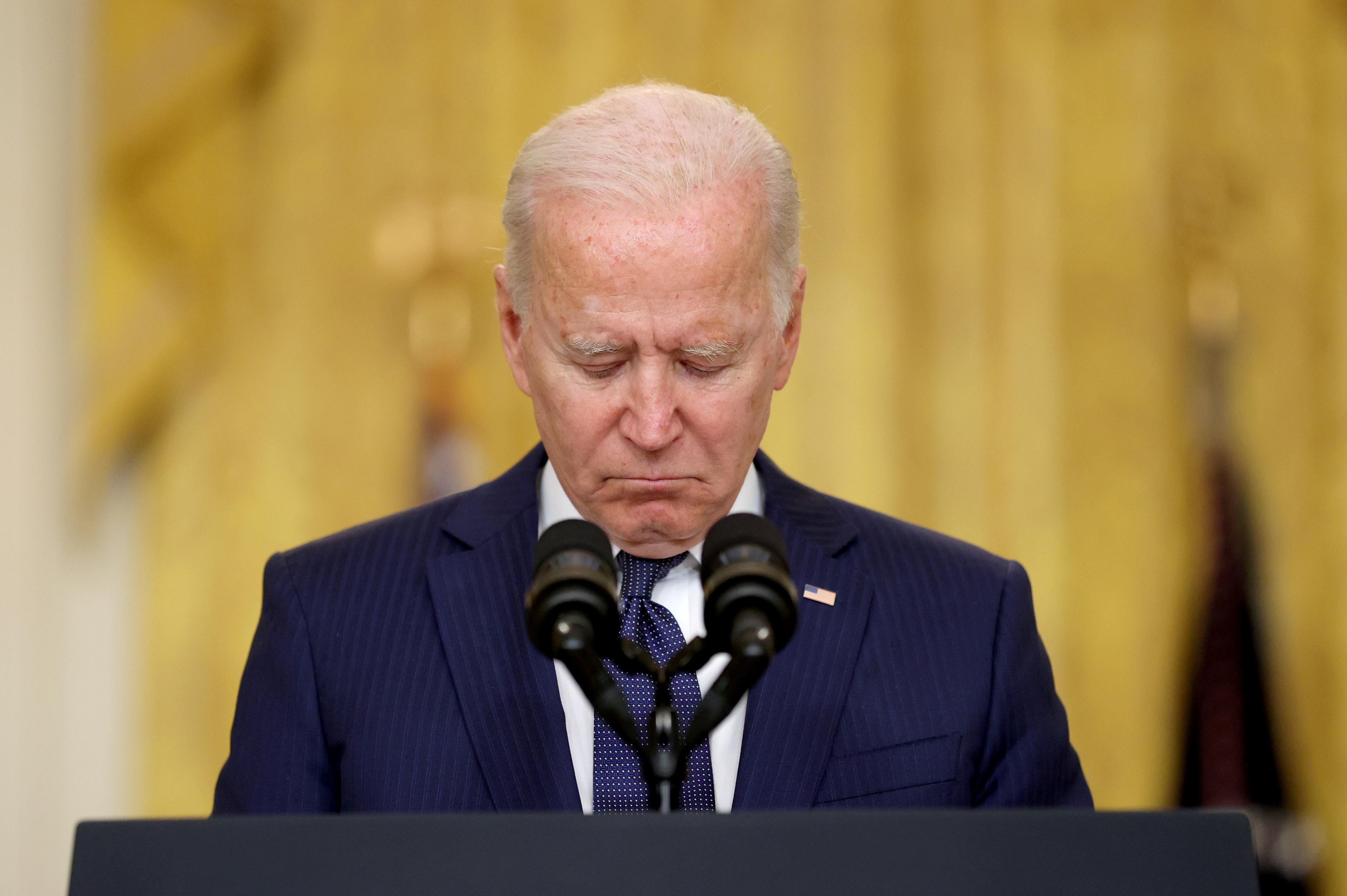The deaths of 13 US service members in twin suicide attacks outside Kabul's airport during the chaotic US withdrawal from Afghanistan has turned what could have been just a temporary political crisis — the mismanagement of a foreign policy objective — into a much more durable, and increasingly damaging crisis for President Joe Biden.
Though recent US elections have tended to hinge on domestic rather than foreign affairs, this episode is no longer a typical foreign policy stumble. It is instead a disaster that will dominate the media and political conversation in the coming months, from talk shows to the halls of Congress. Even mainstream figures in the Republican establishment are calling for the president's removal, though their party would have to regain control of the House of Representatives to begin an impeachment process.
Biden is not helped by a polling slide that began several weeks ago as COVID cases surged, and which shows no signs of stopping as the situation in Afghanistan deteriorates. It's a ten-point drop in net approval over the last month, and there may be further to go. Biden can still recover politically, but it will take time and depend to a large extent on how successful he is at minimizing risks to US citizens and implementing his domestic agenda.
Much also hinges on the next decisions Biden makes, especially how he chooses to proceed with the US withdrawal. Biden is left with two bad options: stick to, or even bring forward, the 31 August exit deadline or extend it — and possibly send in more troops — to try to get more people out of the country. Each has major downsides.
Maintaining or bringing forward the deadline would limit immediate US exposure to further attacks but risk leaving behind some of the roughly 1,500 US citizens still in Afghanistan, many of whom are outside of Kabul and have no good way to reach the airport. Extending the operation may offer a better chance of reaching these people, as well evacuating more of the tens of thousands of Afghans eligible for Special Immigrant Visas, but it comes with the increased risk of terrorist attacks and US deaths in the coming days.
The administration has indicated it will stick to the 31 August deadline, at least for now, meaning that at least some Americans will probably remain once US forces depart. These people face grave risks, and if they are harmed by either by the Taliban or by terrorist groups operating in the country that could set Biden back politically, threatening a wave in the 2022 midterm elections that would stop Biden's legislative agenda and could cost Democrats control of Congress for years.
For now, at least, this hasn't happened, leaving Biden damaged but still in a position to achieve his domestic goals. In fact, the president and his party are under even greater pressure now to deliver on things like the bipartisan infrastructure bill worth $1.2 trillion (of which $550 billion is new money) and the $3.5 trillion social spending package. The White House sees both as potential wins that could attract the support of a majority of voters, including many independents, if not always a bipartisan group of lawmakers. It hopes to appeal to moderate-leaning segments of the electorate that went for Biden in 2020.
Though some Democratic lawmakers in Congress have loudly criticized Biden's handling of the Afghanistan withdrawal, a rift is unlikely to develop between the party and the White House. Democrats will remain united on domestic agenda items because they realize that all of them — even members who advocate a different approach to Afghanistan — are bound at the hip and will succeed or fail together in next year's midterm elections.
The 2022 midterms are even more important now for Dems given that perceptions of Biden's competence and foreign policy experience, traditionally his main strengths, have been tarnished by the COVID resurgence and now the Afghan withdrawal. The president and his allies must present voters with a reason they deserve to stay in power. In the absence of major wins, a rehash of their 2020 "the adults are back in charge" message is likely to fall flat the next time they face voters.
Democrats can point to a successful if slower than expected vaccination effort as a major achievement, but the core themes of competence and steady-if-quiet progress will need to be accompanied by major domestic achievements to capture voters' attention. The long, dark tunnel created by the pandemic has darkened further following recent events in Afghanistan, and Biden must show there is an ever-brighter light at the end to keep the public with him.
